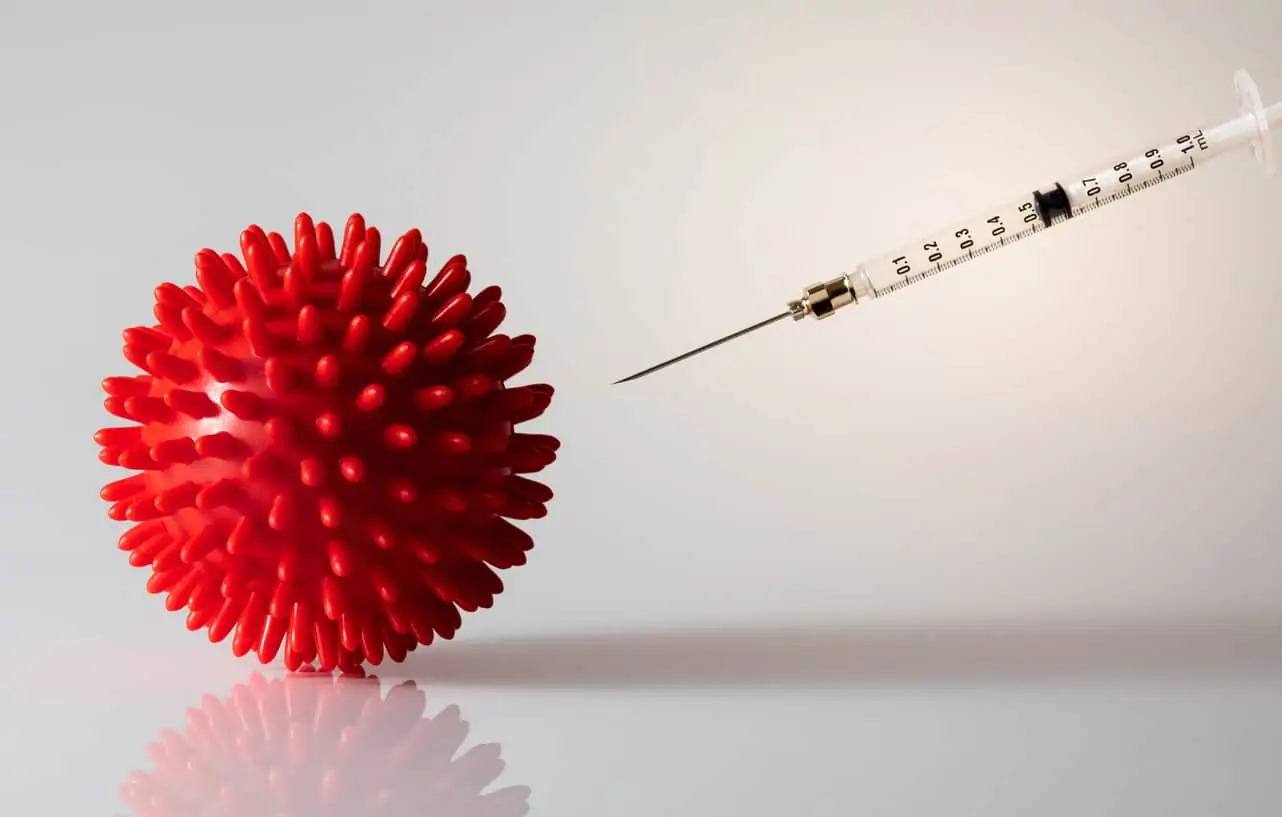A coronavirus antibody test (COVID-19 IgG/IgM) will let you know if you've been exposed to the virus, and learning more about how the test works can add to your peace of mind. Here are the answers to some of the most common questions about antibody testing, also called serology.
What are antibodies?
Your immune system's B cells create proteins called antibodies when they detect foreign organisms. These proteins bind to proteins on the surfaces of viruses called antigens, and they work a lot like a key fitting into a lock. They keep germs from invading your cells, and they make it easier for your T cells to detect and destroy them.
Antibodies can keep you from getting an infection by helping your body eliminate it before it can spread. However, each antibody can bind to only one type of antigen. For example, COVID-19 antibodies won't protect you from the flu or the common cold, but they could increase your immunity to the coronavirus that causes COVID-19.
Why is antibody testing important?
Antibody testing lets people know if they've been exposed to COVID-19. As scientists learn more, testing could also tell you whether or not you have any immunity to the new coronavirus. The antibodies for some viruses, such as measles, will stay in your body and protect you for years. However, antibodies for illnesses like the common cold or the flu don't stay effective for long because the virus mutates often.
Scientists still aren't sure if COVID-19 antibodies confer temporary or permanent immunity, and antibody testing gives people more information about how long they can expect protection after getting COVID-19 or a newly developed vaccine. People with large numbers of COVID-19 antibodies can help others recover from COVID-19 by donating convalescent plasma. The antibodies in the donor's plasma will help the recipient's immune system recognize and fight the virus.
Antibody testing can also give doctors preliminary data about whether a new COVID-19 vaccine will be effective. Vaccines use weakened or dead viruses to stimulate antibody production, giving the recipient's immune system a head start if they're exposed later. When doctors develop a vaccine, they can use antibody testing to find people who don't have any immunity to COVID-19 and offer the treatment to them first. That way, the most vulnerable members of the population will get protection as soon as possible.
Who should get a test?
People with antibodies are more likely to be resistant to infection, and a COVID-19 antibody test will give you useful information about your risk level. You should consider taking a COVID-19 antibody test if you could have been exposed to the virus. It's useful for workers who interact with people often, such as grocery store cashiers, nurses, and hairstylists. Individuals who have had symptoms should also get an antibody test whether or not they tested positive for the virus.
If you have interacted with a person who has tested positive for COVID-19, you should think about getting an antibody test, as well. Your immune system can take a while to make antibodies, so if you believe you might have had COVID-19, you should wait at least 10 days after symptoms end to get tested. If a coronavirus infection is still active, you may not have enough free antibodies in your blood for a positive antibody test.
How do antibody tests work?
You can get an antibody test by contacting a doctor's office or testing center and making an appointment. Two different types of tests are available. With one, a phlebotomist will draw blood from your arm and send it to a lab. You'll get the results in 24 to 48 hours, including detailed information about the number of antibodies in your blood if you have a positive antibody test.
With the other type of test, a technician will prick your finger and place a small amount of your blood on a testing strip. You'll get the results in 3 to 5 days, but this test only tells you whether you have antibodies, not how many you have.
Both tests detect IgG and IgM antibodies. According to the Centers for Disease Control and Prevention, people usually produce IgM antibodies first, making these antibodies better for finding individuals who were exposed or infected recently. IgG antibodies appear later, and they could last for months or years. Most tests are positive for both types of antibodies, but some individuals may have only IgM.
If I have antibodies, are COVID-19 precautions still necessary?
Even if your coronavirus antibody test is positive, you'll need to practice social distancing, wear a mask in public places, wash your hands often, and stay home when possible. Antibodies won't make you completely resistant to infection, and your immunity could fade.
You could also spread the virus by touching contaminated surfaces and then coming into contact with others. Some people with antibodies could even have COVID-19 infections with concentrations of the virus that are high enough to be contagious. Taking the appropriate precautions will make those you interact with feel more comfortable and help everyone stay healthy.
Are these tests FDA approved?
Many COVID-19 antibody tests from certified labs received an Emergency Use Authorization from the FDA. They'll get full approval after the FDA reviews them more thoroughly. Most of these tests are extremely accurate, but they're not completely flawless. Like tests for other diseases, a very small percentage of people will experience false-negative or false-positive results. If you don't get the test result you anticipate, you can wait a week and get tested again for additional verification.
Contact us to learn more about what you can do to stay healthy during this pandemic.
 East Delray, Florida
East Delray, Florida West Delray, Florida
West Delray, Florida The Boca Raton, Florida
The Boca Raton, Florida Midtown Miami, Florida
Midtown Miami, Florida Carillon Wellness Resort
Carillon Wellness Resort  Williams Island
Williams Island  Midtown Tampa, Florida
Midtown Tampa, Florida Life Time
Life Time Grand Wailea
Grand Wailea  NOW OPEN
NOW OPEN  COMING SOON
COMING SOON 

